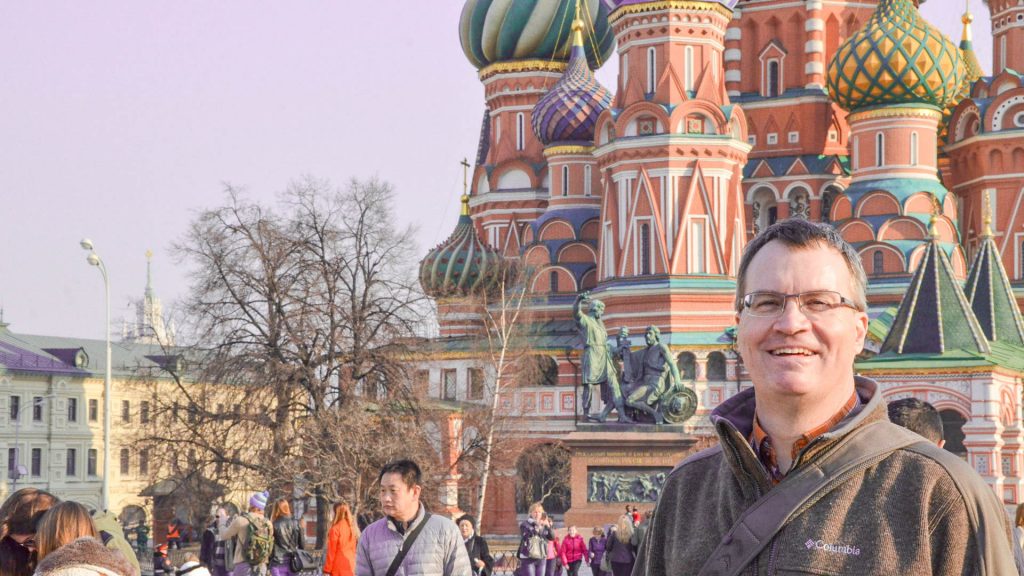After living in Siberia for 10 years, my wife Elizabeth and I moved to Moscow in December 2014. We are constantly impressed with the size, hustle and bustle of Moscow. Wherever we go, we see many Central Asians, Europeans and East Asians.
Moscow is the largest city in Europe with somewhere over 15 million people. At least 11 million are Russians and Ukrainians. Tatars, Belarusians, Jews, Armenians, Kazakhs, Uzbeks — and many more — make up the remaining 4 million people in this mega-city. It is a very interesting mix that didn’t exist 20 years ago.

Andy Leininger served among the peoples of Russia for 22 years.
In 2014, some laws were passed to limit the number of foreigners in Russia, and they have been successful. Applicants for residency have dropped by 70 percent since January 2015.
Russia and Moscow are in the process of understanding globalization. Russian culture is three times older than our U.S. culture and has been isolated for much of her history. Globalization can be as frightening as it is exciting to as many people.
Current events have isolated Russia even more. Russians are trying to sort out what the rest of the world thinks of them, what they think of the rest of the world and what they want the world to think of them.
In many ways, the average Russian is willing to accept economic and financial globalization, but ethnic globalization is viewed with suspicion. They know it is coming and have seen the economic growth Russia has experienced in the past 10 years but don’t know what will happen next.
Pray that Russians can see the opportunities globalization and the world offers, and not just the threats. Pray that they will see redeeming faith in Jesus Christ as the answer to their concerns and not a threat to their culture and history

